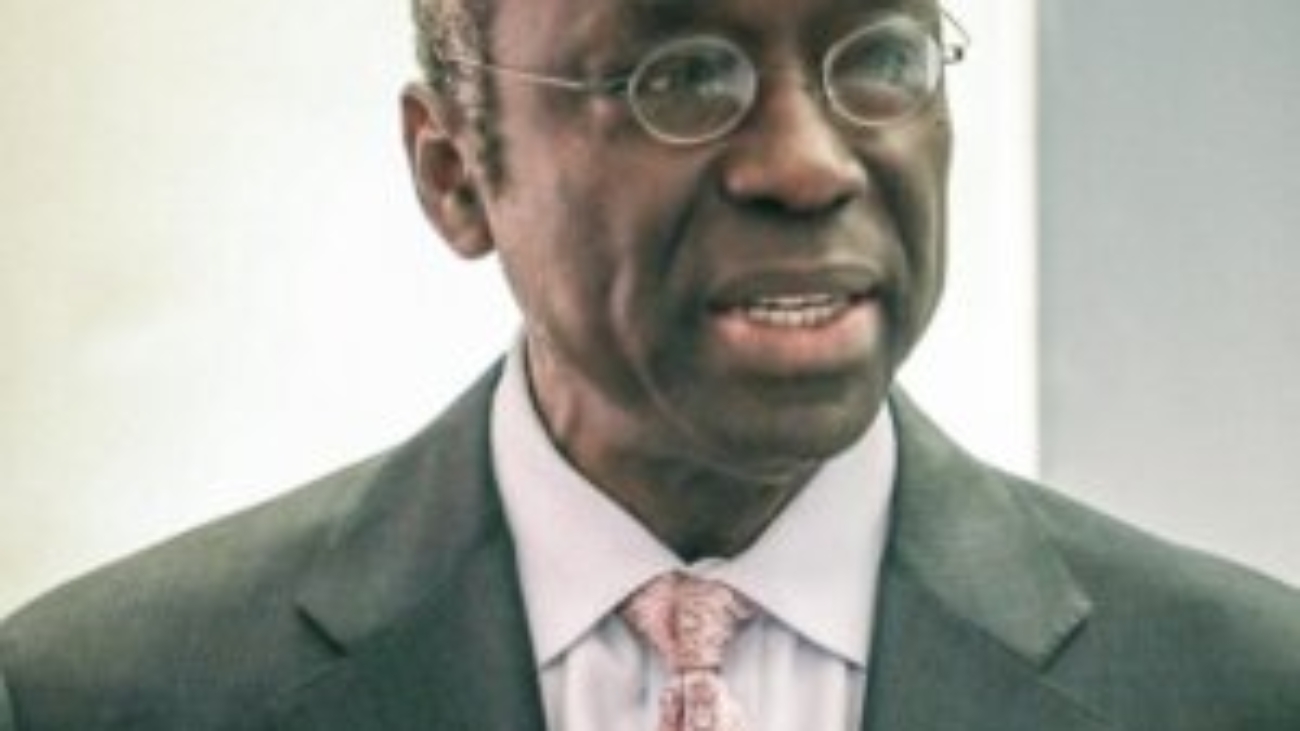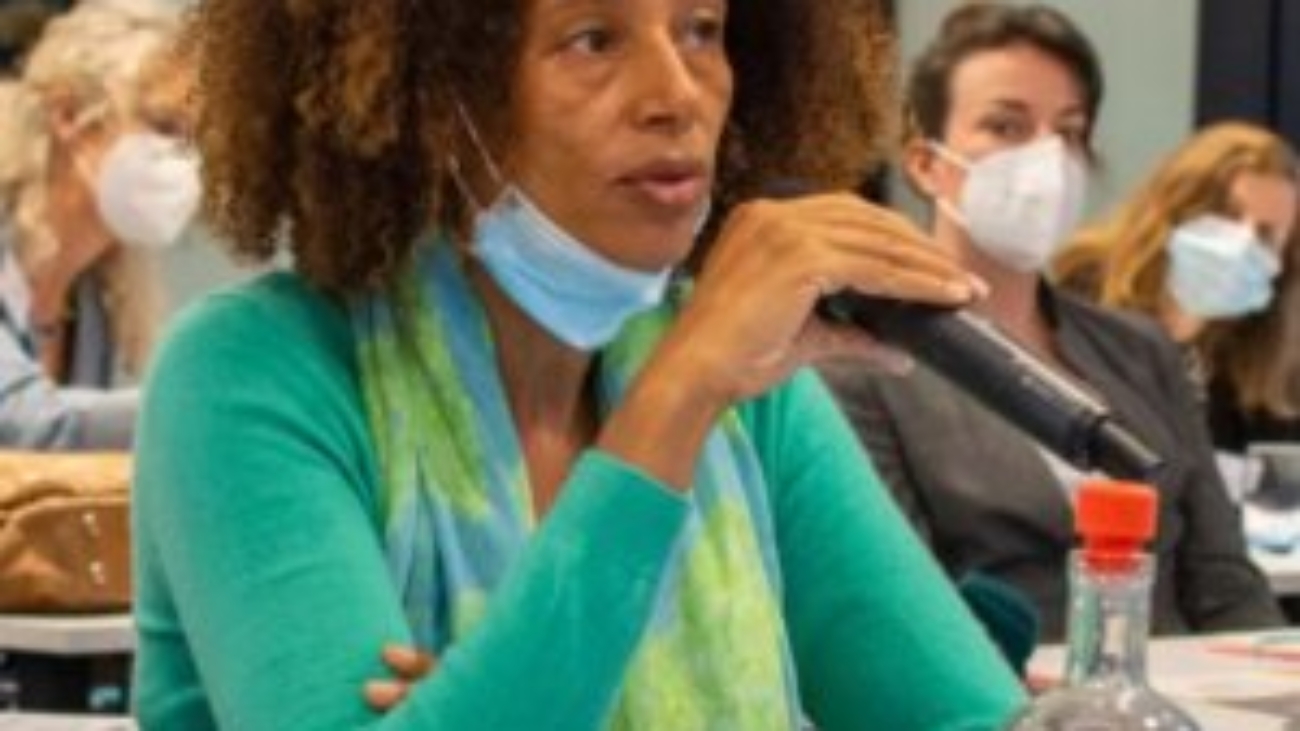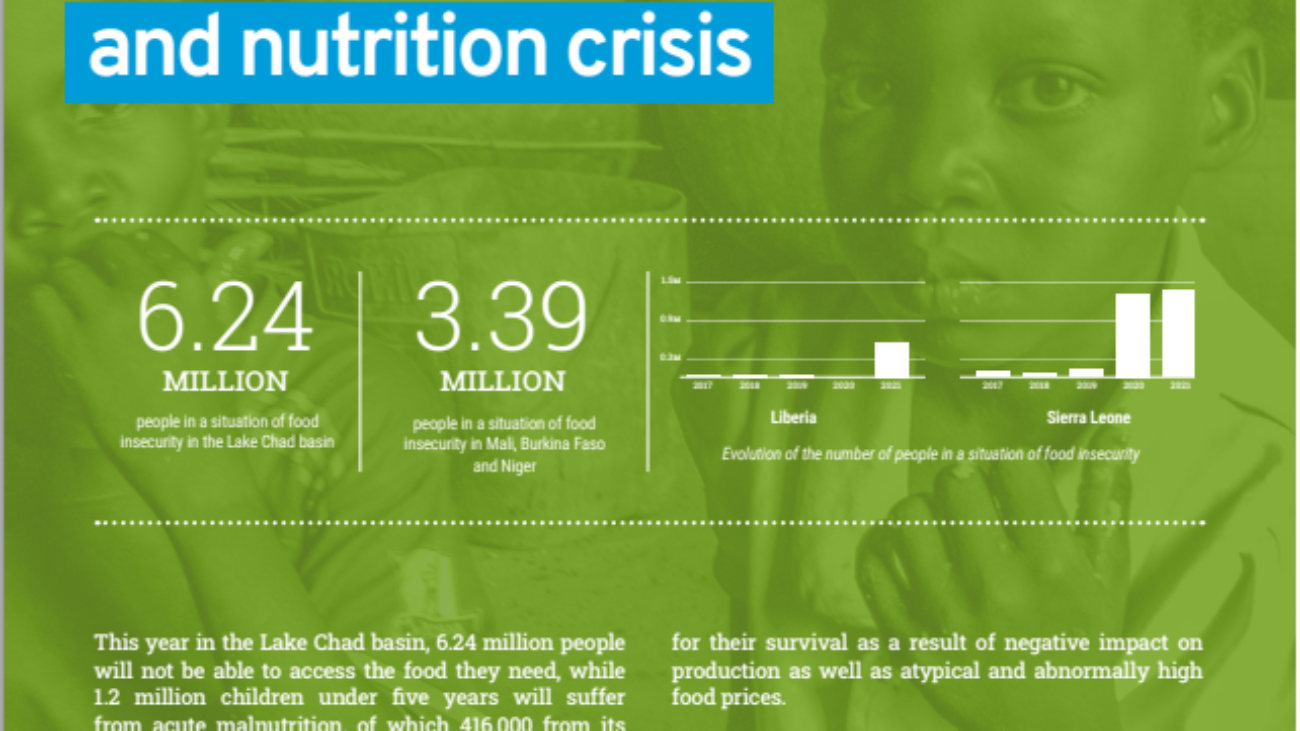joint session on Natural resource governance (NRG) and fragility in the Sahel
Remarks by M. Abdoulaye Mar DIEYE
United Nations Special Coordinator for Development in the Sahel
Virtual session, 20 April 2022, 13.30 CET
Dear colleagues and partners,
I would like to start by thanking INCAF and SWAC for this very timely meeting: natural resources are both a critical challenge and opportunity in the Sahel. On one hand, the effects of climate change are further exacerbating conflicts and impacting structural root causes of conflicts linked to the access, management and use of natural resources. At the same time, the Sahel is endowed with more potential for renewable energy such as solar and wind, than other regions of the world. Renewable energy technologies provide a unique opportunity to increase access to reliable, affordable and sustainable clean energy and boost socio-economic growth in the Sahel through innovative livelihood opportunities. The growth of rural economies, the resilience of the populations against climate change and insecurity, are critical for the stability of the region. We also need to harness the abundant natural resources available in the Sahel (such as oil, natural gas, gold, phosphates, diamonds, copper, iron ore, bauxite, biological diversity and precious woods, among many other assets).
The crisis in Ukraine is sending all of us a critical reminder of our interdependence to critical grains and cooking oils and has had a great impact on the Sahel countries. It has shown us the need for strengthened governance and diversified economies in the region.
As the report clearly states, natural resources in the Sahel face mounting pressures.
While the population is projected to go from the current level of 91 million to 196 million by 2050, environmental degradation and climate change have had a significant impact on ecosystems, leaving fragility take over in many areas, especially in vulnerable zones and at the borders.
Many countries continue to suffer from poor governance, including governance of renewable resources, especially in those areas.
While it is important to focus on the symptoms, it is crucial to look at fragility dynamics and the role of development to address those challenges.
We need to look at how we can address conflict drivers and climate-related risks with a peacebuilding lens and ensure that all conflict analysis is climate-informed. And articulate and prioritize a strong prevention approach that would identify and address future cross-border hot-spots, where investments are most needed to reverse the negative effects of conflict and climate change on local communities.
Ahead of COP 27, we have a unique opportunity to think and push for synergies and opportunities to address the impact of climate change and peacebuilding objectives together. Beyond short to medium-term focus at the community-level, we need to look at identifying linkages with institutional policies, national and regional frameworks, and strategies to connect local and national levels, with regional and cross-border levels.
Preventing and mitigating fragility is key to making progress towards implementing the Sustainable Development Goals (SDGs) and to the international community’s broader efforts to promote peace and prosperity.
Investment priorities should include financing livelihood, climate-resilient income-generating activities, delivery of household supplies and goods, and small-scale basic infrastructure in conflict-affected communities. We need to promote multi-sectoral investments to increase access to socio-economic infrastructure and services, particularly water and sanitation, local economic development interventions, and environmental and natural resource management.
National and regional data and monitoring, as well as regional coordination and collaboration, also need to be supported to pave the way for future regional programming and larger-scale investments.
Effective strategies to improve renewable natural resources governance have focused on land rehabilitation and water management. Projects such as the World Food Programme Cash for Assets in Niger have increased the number of hectares under cultivation in targeted areas. Successful strategies involve local communities and need to be scaled-up to the national or regional level.
To ensure sustainability of any investment, there is a need for strong alignment with regional strategies (UNISS/G5 Sahel/ECOWAS) and partnerships with regional organizations as well as with in-country partners and within the region that can help shape climate-informed interventions (universities, think tanks, youth-led climate activists’ groups).
Climate security projects, such as those aimed to reduce tensions between farmers and herders, should seek to target deeper grievances, such as those related to land governance and marginalization beyond local-level conflict resolution.
Development is key to address the grievances, root causes and prevent crises. This is the objective of the UNISS and its UN Support Plan for the Sahel.
We tend to only focus on security aspects and humanitarian needs while the Sahel is blessed with abundant human, cultural and natural resources, offering tremendous potential for rapid growth.
In terms of natural resources, the Sahel is one of the richest regions in the world, abundant with oil, natural gas, gold, phosphates, diamonds, copper, iron ore, bauxite, biological diversity and precious woods, among many other assets. These natural endowments offer immense value for economic diversification, value-chain development and livelihoods.
However, there are growing concerns about the transparency and governance of other resources such as extractive industries as well as the generation and use of revenues. Extractive resources such as uranium in Niger and oil in Chad, are extremely important export commodities for the countries of the Sahel. It is high time for development cooperation to do more to foster a properly functioning domestic governance regime for Niger’s uranium mines or Chad’s oil sector.
Practitioners, donors and academics have suggested a number of strategies or interventions to improve the effectiveness of extractive resources management. These include improving the flow of information about extractives; greater disclosure of information and compliance with the Extractive Industries Transparency Initiative; and building the capacity of government staff to monitor compliance with regulations.
Natural resource governance is an important entry point for responses given the centrality of land, water, biomass, and gold in Sahel livelihoods. If these resources are well-managed, it can not only help address fragility, but also deliver significant development pay-offs.
This is why the UN Support Plan for the Sahel (priority 4) aims at: “Building resilience to climate change, improving management of natural resources, and decreasing malnutrition and food insecurity.”
Given the scale of natural resource challenges and the speed of demographic and socioeconomic changes, it is essential to achieve a better shared understanding of natural resource governance issues in relation to fragility.
Sahel countries have already gone a long way in developing natural resource governance frameworks, yet implementation remains challenging. Their deficits have a strong influence on fragility, and are closely connected to other fragility drivers, including food insecurity, poverty, corruption, insecurity and marginalization.
In a context where there are little alternative options to mitigate food insecurity and support livelihoods besides natural resources, adaptation to climate change should be central to any policy that seeks to address conflict in the Sahel.
Unless the effects of climate change on livelihoods are mitigated, the spread of poverty will push increasingly desperate people into the hands of opportunistic groups, such as Jihadists.
Among the policy orientations for NRG stakeholders listed in the report, we can retain the followings:
- scaling up good NRG practices across Sahel territories,
- integrating links between NRG and fragility in Humanitarian, Development and Peace (HDP) efforts,
- investing in the next generation of NRG mechanisms and increasing support for development and regulation of ASM.
Evidence-based dialogue is essential to improve NRG in the Sahel and prepare for the future of a Sahel in transition. We need more evidence-based research and partnership with local universities, think tanks, and civil society organizations to further land this agenda in countries.
To push more innovation, climate security projects can establish innovation labs to empower young peacebuilders, human rights defenders and climate activists to join forces and co-create bottom-up solutions and advocacy campaigns. Projects can also focus on developing foresight analyses to address upcoming climate-related security risks.
We need to call upon the international community for more knowledge sharing, data and collaboration between Sahelian governments and regional organisations, and across HDP actors.
The United Nations stand ready to accompany governments, local actors and all stakeholders to improve natural resource governance in the Sahel through.
I will now give the floor to Laurent and wish you fruitful discussions on how to support NGR to address the root causes of fragility in the Sahel.
Thank you.














